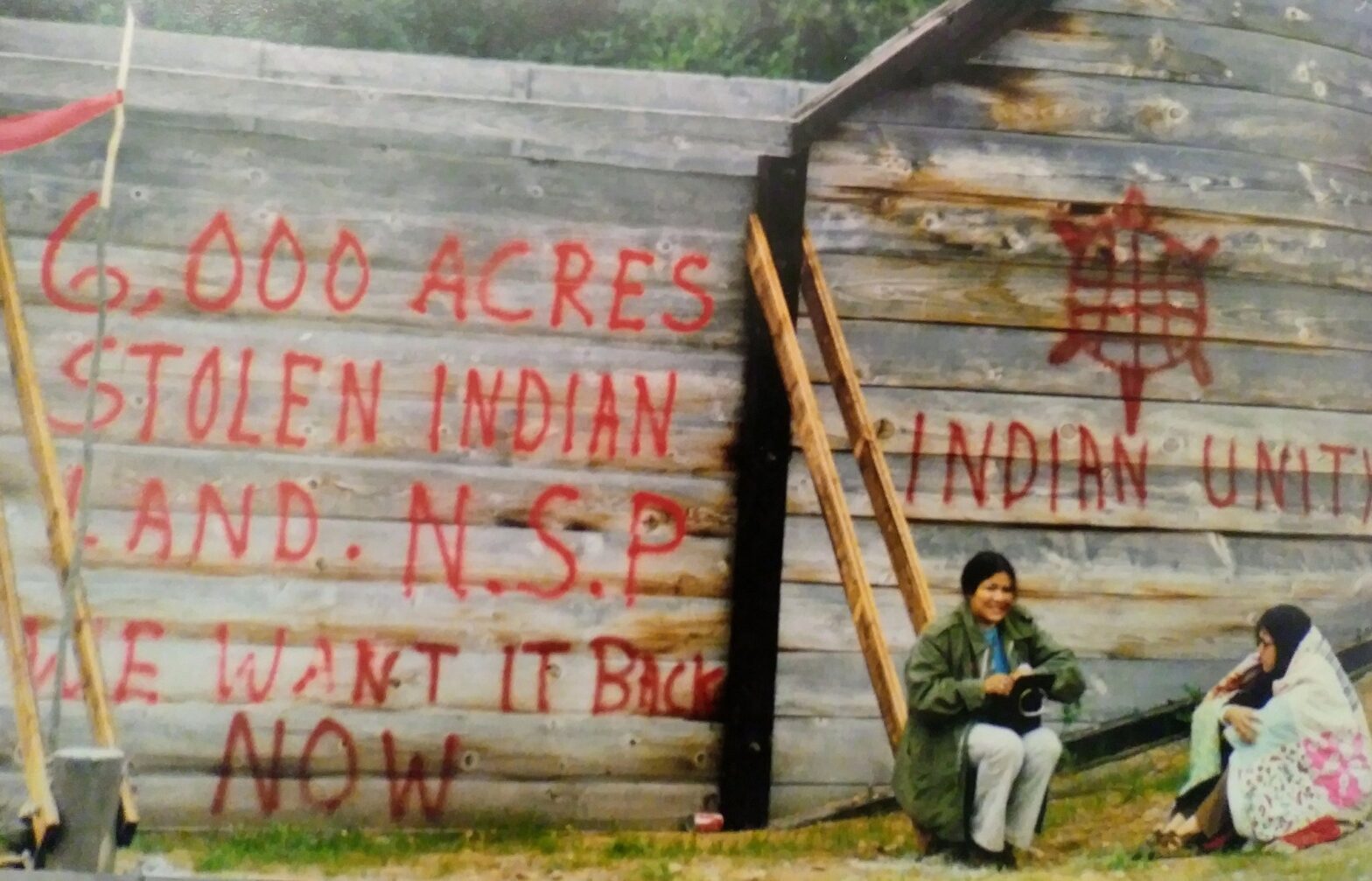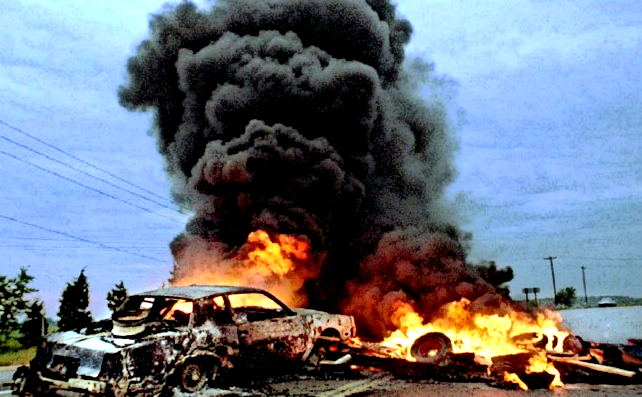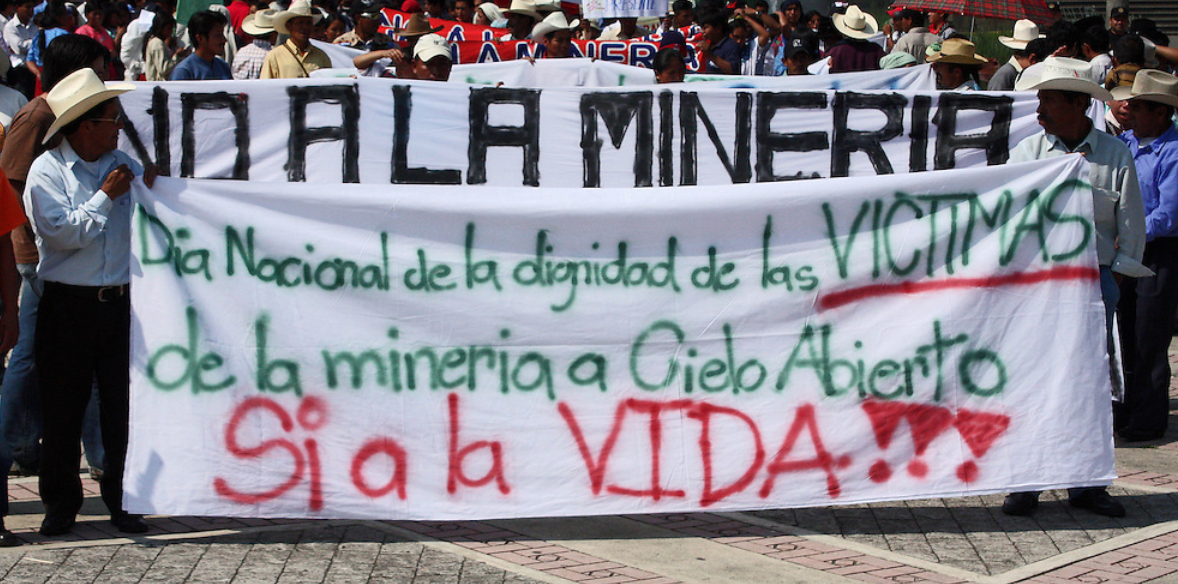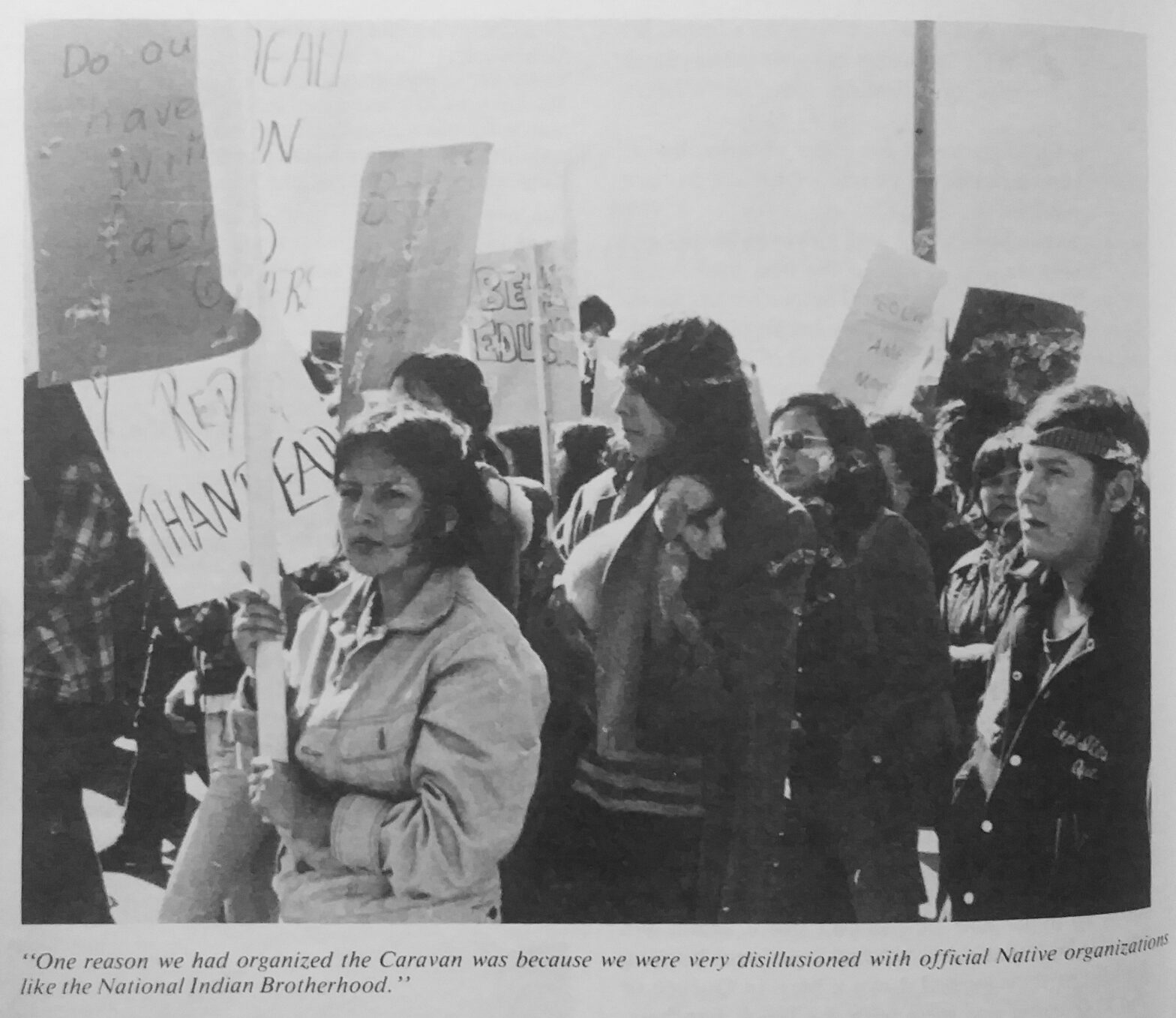Land Back is truly a slogan whose time has come. A modern solution to a modern problem. How to boil down Indigenous sovereignty and liberation to its basic components. Memes, graffiti and tweets benefit from brevity. But the term Land Back, like everything else, has a certain ancestry.






